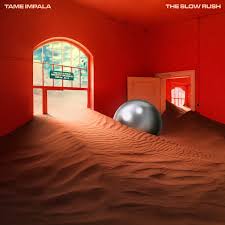ST. VINCENT - Strange Mercy
 Monday, September 26, 2011 at 11:30AM
Monday, September 26, 2011 at 11:30AM 
![]()
Annie Clark is in love with the moment of collision. She swoons in the presence of abrasion. No matter how magnificent any two things are in their respective pure states, it's nothing compared to the heavy, heavy mess they can make when they're thrown together.
This idea has always been a central part of her young career as St. Vincent, but it's never been truer than on her latest, Strange Mercy. On this, her third LP, Clark is completely committed to this pursuit, and it creates a statement that is about as bold as any you'll hear on record all year.
But it also bears the scars of such a sacrifice to a single ideal.
That's because Strange Mercy is an album that is led by its sounds. Clark's lyrics—and there are many very good ones throughout—never really take centre stage. Unprinted in the art and nearly always delivered in the most delicate, breathiest of tones, they rarely stand out against the fascinating and constantly evolving melange of tones that surround them. Clark's no dummy, and such a juxtaposition is clearly intentional. If anything, her consistently delivered voice can be seen as a necessary constant, a point on the horizon to keep the listener from succumbing to the digital seasickness that surrounds them.
And it does get wild out there. For starters, Strange Mercy marks the moment that she emerges as a new breed of guitar hero. In spite of (or perhaps due to) a heavily processed sound that renders it both farty and arty, her guitar playing is incredible throughout. Deft and delicate at one moment, frayed and falling apart the next, it perfectly embodies the two most leading traits of Clark musical persona: elegance and nervousness. And so we get "Northern Lights", a track that radiates both awe and foreboding as Clark sings: "I saw the Northern Lights/convinced it was the end of times." As her hysteria mounts, the song veers into a violent, unrecognizable solo that draws inspiration from the titular phenomenon to create an audio squall that figuratively attacks the rest of the song. You can just imagine the wide smile that appeared on her face when she was in the studio listening to the first playback of that moment. It's unbelievably overwhelming.
Elsewhere, like the opener "Chloe in the Afternoon" or the slippery riff that kicks "Surgeon" into sultry gear, she takes the explorations into arty funk suggested by songs like Actor's "Marrow" to new, skewed heights. She brandishes her guitar and the various effects she employs with the casual skill of an expert martial artist—never breaking a sweat, daring you to flinch first so that she can easily expose your weakness.
To be sure, Strange Mercy isn't without its lesser moments—the last third of the album runs a little out of gas compared to the high, high standard she sets in the songs that precede it. Still, throughout, Clark proves she has attained a new kind of pure state in her music—a place where she has been able capably to recontextualize the ideas of "beautiful" and "rocking out" in music in a way that is nearly entirely her own. Given just how many other musicians there are out there using the exact same tools as she, I don't think you can understate just how significant an accomplishment Strange Mercy is.
 Pop/Rock
Pop/Rock 

Reader Comments